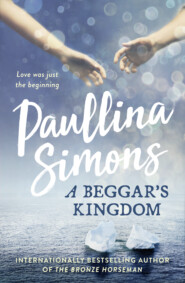По всем вопросам обращайтесь на: info@litportal.ru
(©) 2003-2024.
✖
Tatiana and Alexander
Настройки чтения
Размер шрифта
Высота строк
Поля
He nodded, writing something down in his book. “And the name you want to go by? I saw on the documents you brought with you that you got out of the Soviet Union as a Red Cross nurse named Jane Barrington.”
“Yes.”
“How fake are those documents?”
“I do not understand what you mean.”
Tom fell silent. “Who is Jane Barrington?”
Now Tatiana was silent. “My husband’s mother,” she said at last.
Tom sighed. “Barrington? Not very Russian.”
“My husband was American.” She lowered her gaze.
Tom opened the door. “Is that the name you want to use to get your permanent residency card?”
“Yes.”
“No Russian name for you?”
She thought about it.
Tom came closer to her. “Sometimes refugees who come here like to cling to a little bit of their past. Maybe they leave just the first name the same. Change the last name. Think about it.”
“Not me,” she replied. “Change all. I don’t want to—how you put it? Cling to anything.”
He wrote something down in his book. “Jane Barrington it is, then.”
When he left, Tatiana opened her Bronze Horseman book as she sat once more by the window, looking out onto the New York harbor and the Statue of Liberty. She touched the picture of Alexander she had kept in there; without looking at it she touched his face and his uniformed body, and she whispered small short words in Russian to comfort herself this time, not Alexander, not his child, but herself. Shura, Shura, Shura, whispered Jane Barrington, once known as Tatiana Metanova.
Tatiana’s days consisted of feeding Anthony and changing Anthony and washing Anthony’s few nightgowns and cloth diapers in the bathroom sink and going on short, fragrant walks outside the hospital and sitting on benches with Anthony wrapped in blankets in her arms. Brenda brought her breakfast to her room. Tatiana ate lunch and dinner in her room. Unless Anthony was sleeping, Tatiana had him in her arms. She looked at only two things: the New York harbor and her son. But whatever comfort she received from holding her baby was dissipated from being alone day in and day out. Brenda and Dr. Ludlow called it convalescing. Tatiana called it solitary confinement.
One morning at the end of July, tired of herself, of sitting in her room, Tatiana decided to take a walk down the corridor while Anthony was sleeping.
She heard groans from the corridor and followed the groans into a ward filled with wounded men. Brenda was on duty—the only one on duty—looking less than pleased with her lot and showing the wounded men exactly how she felt. Grumbling, curt, displeasingly surly, she was washing out a wound on a soldier’s leg despite repeated and loud pleas from the soldier to either do it more gently or to shoot him.
Tatiana walked over and asked Brenda if she needed help, to which Brenda replied that she certainly didn’t need a sick girl making her prisoners sicker, and could Tatiana immediately go back to her room. Not moving, Tatiana stood, stared at Brenda, stared at the raw hole in the soldier’s thigh, at the soldier’s eyes, and said, “Let me bandage leg, let me help you. Look, I have mask over my nose and mouth. You got four men screaming for you on other side of hospital. One just lose a tooth in his morning coffee. One have raging fever. One is oozing blood through his ear.”
Brenda let go of the bucket and the soldier’s leg and left, though Tatiana could see that for a moment Brenda had struggled with what actually gave her more displeasure: taking care of the soldiers or letting Tatiana have her way.
Tatiana finished washing out the wound; the soldier never peeped, looking soothed and asleep; either asleep or dead, Tatiana concluded as she bandaged his leg, still without motion from him, and moved on.
She disinfected an arm wound and a head wound, started an IV, and administered morphine, wishing for a bit of morphine for herself to dull her inner aching, at the same time thinking how lucky the German submarine men were to have had the luck to be brought to American shores for imprisonment and convalescence.
Suddenly Brenda appeared and, as if surprised that Tatiana was still in the ward, asked her to immediately go back to her room before she infected all her patients with TB, sounding almost as if she cared what happened to the patients.
As Tatiana was heading back, out in the corridor by the water fountain, she saw a tall, slim girl in a nurse’s uniform standing and crying. Long-haired and long-legged, she was quite beautiful; if you didn’t look at her mascara-streaked, tear-streaked, swollen eyes and cheeks. Tatiana needed a drink of water, and so with great discomfort she proceeded past the girl, stopping just half a foot away from her to get to the fountain. The girl sobbed loudly. Tatiana put her hand on the girl’s elbow and said, “Are you all right?”
“I’m fine,” the girl sobbed.
“Oh.”
The girl continued to cry. She held a slightly moist cigarette in her hands. “If you only knew how freakishly miserable I am at the moment.”
“Can I do anything?”
The girl looked out of her wet hands at Tatiana. “Who are you?”
“You can call me Tania.”
“Aren’t you the TB stowaway?”
“I am better now,” Tatiana said quietly.
“You’re not Tania. I processed your documents myself. Tom gave them to me. You’re Jane Barrington. Oh, what do I care? My life is in shambles and we’re talking about your name. I wish I had your problems.”
Trying quickly to find the words to say something comforting in English, Tatiana said, “It could be worse.”
“That’s where you’re so wrong, missy. It’s as bad as can be. Nothing worse can happen. Nothing.”
Tatiana noticed the wedding band on the girl’s finger, and her sympathy flowed. “I am sorry.” She paused. “Is it about your husband?”
Without looking away from her hands, the girl nodded.
“It is terrible thing,” said Tatiana. “I know. This war …”
The girl nodded. “It’s the pits.”
“Your husband … he is not coming back?”
“Isn’t coming back?” the girl exclaimed. “That’s the whole point! He is very much coming back. Very much so. Next week.”
Tatiana took a puzzled step away.
“Where are you going? You look like you’re ready to fall down. It’s not your fault he is coming back. Don’t look so upset. I guess worse things have happened to girls at war, I just don’t know of any. You want to go grab a coffee? Want a cigarette?”
Tatiana paused. “I have coffee with you.”
They sat down in the long dining room at one of the rectangular tables. Tatiana sat across from the girl who introduced herself as Viktoria Sabatella (“But call me Vikki.”), shook Tatiana’s hand vigorously and said, “You here with your parents? I haven’t seen any immigrants come this way in months. The boats are not bringing them in. So few—what? You’re sick?”
“I am better now,” said Tatiana. “I am here with myself.” She paused. “With my son.”
“Get out!” Viktoria slammed her coffee cup on the table. “You don’t have a son.”
“He almost month old.”
“How old are you?”











